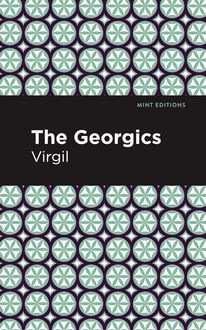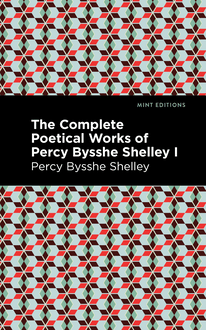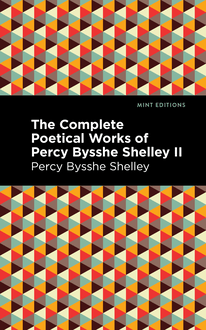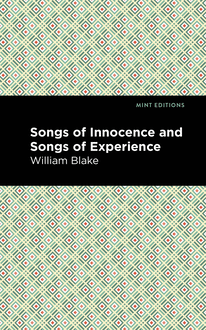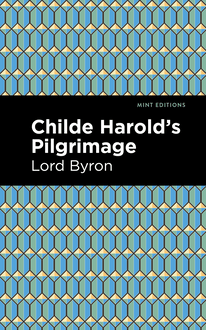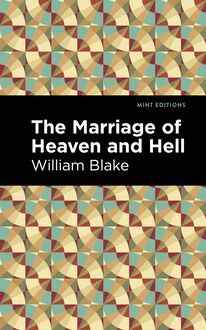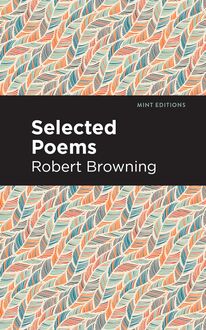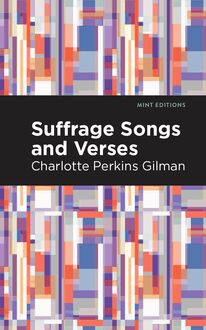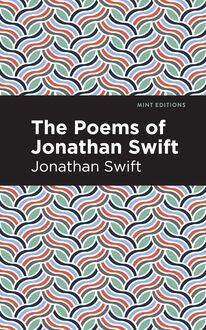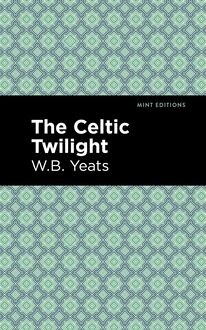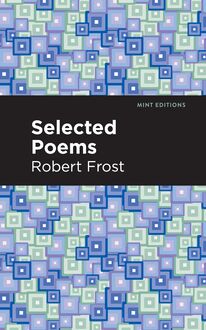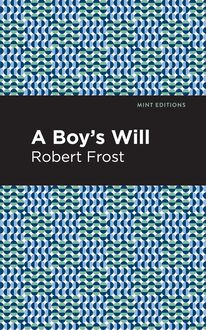-
 Univers
Univers
-
 Ebooks
Ebooks
-
 Livres audio
Livres audio
-
 Presse
Presse
-
 Podcasts
Podcasts
-
 BD
BD
-
 Documents
Documents
-
- Cours
- Révisions
- Ressources pédagogiques
- Sciences de l’éducation
- Manuels scolaires
- Langues
- Travaux de classe
- Annales de BEP
- Etudes supérieures
- Maternelle et primaire
- Fiches de lecture
- Orientation scolaire
- Méthodologie
- Corrigés de devoir
- Annales d’examens et concours
- Annales du bac
- Annales du brevet
- Rapports de stage
La lecture à portée de main
Vous pourrez modifier la taille du texte de cet ouvrage
Découvre YouScribe en t'inscrivant gratuitement
Je m'inscrisDécouvre YouScribe en t'inscrivant gratuitement
Je m'inscrisEn savoir plus
Vous pourrez modifier la taille du texte de cet ouvrage
En savoir plus

Description
The Wild Swans at Coole (1919) is a collection of poems by W.B. Yeats. Written while the poet was at the height of his career, The Wild Swans at Coole presents Yeats’ typical concerns—aging, love, and the nature of art—against the backdrop of a decade of war. These poems, written during the First World War and the formative years of the Irish independence movement, reflect the harsh political and social realities of the era while remaining true to the mind of one of Ireland’s greatest artists.
The title poem, a meditative lyric on art, love, and aging, uses the image of wild swans to reflect the fleeting nature of years and worldly beauty. Having watched the swans for nineteen years, the poet wonders how, after so much time, “Their hearts have not grown old,” while “Passion of conquest, wander where they will, / Attend upon them still.” Disturbed that the world will not reflect his inner torment, he wonders what will happen when, one day, he awakes “To find they have flown away?” In “An Irish Airman Foresees His Death,” Yeats reflects on the First World War from the perspective of a serviceman doomed by his own conflicting allegiances: “I know that I shall meet my fate / Somewhere among the clouds above; / Those that I fight I do not hate / Those that I guard I do not love.” Despite this poem’s political theme, Yeats includes another poem in the collection that questions the place of poetry in politics altogether. “On Being Asked for a War Poem” suggests that “A poet keep his mouth shut,” his words being better suited to “A young girl in the indolence of her youth, / Or an old man upon a winter’s night.” The Wild Swans at Coole is a moving portrait of the poet’s anxieties, of his fear of death and aging, of his faint suspicion that poetry, though beautiful, fails to address the issues of the era.
With a beautifully designed cover and professionally typeset manuscript, this edition of W.B. Yeats’s The Wild Swans at Coole is a classic of Irish literature reimagined for modern readers.
Sujets
Informations
| Publié par | Mint Editions |
| Date de parution | 01 février 2021 |
| Nombre de lectures | 0 |
| EAN13 | 9781513275857 |
| Langue | English |
| Poids de l'ouvrage | 2 Mo |
Informations légales : prix de location à la page 0,0300€. Cette information est donnée uniquement à titre indicatif conformément à la législation en vigueur.
Extrait
The Wild Swans at Coole
William Butler Yeats
The Wild Swans at Coole was first published in 1917.
This edition published by Mint Editions 2020.
ISBN 9781513270852 | E-ISBN 9781513275857
Published by Mint Editions ®
minteditionbooks .com
Publishing Director: Jennifer Newens
Design & Production: Rachel Lopez Metzger
Project Manager: Micaela Clark
Typesetting: Westchester Publishing Services
C ONTENTS T HE W ILD S WANS AT C OOLE I N M EMORY OF M AJOR R OBERT G REGORY A N I RISH A IRMAN F ORESEES H IS D EATH M EN I MPROVE WITH THE Y EARS T HE C OLLAR -B ONE OF A H ARE U NDER THE R OUND T OWER S OLOMON TO S HEBA T HE L IVING B EAUTY A S ONG T O A Y OUNG B EAUTY T O A Y OUNG G IRL T HE S CHOLARS T OM O ’ R OUGHLEY T HE S AD S HEPHERD L INES W RITTEN IN D EJECTION T HE D AWN O N W OMAN T HE F ISHERMAN T HE H AWK M EMORY H ER P RAISE T HE P EOPLE H IS P HOENIX A T HOUGHT FROM P ROPERTIUS B ROKEN D REAMS A D EEP -S WORN V OW P RESENCES T HE B ALLOON OF THE M IND T O A S QUIRREL AT K YLE -N A -G NO O N B EING A SKED FOR A W AR P OEM I N M EMORY OF A LFRED P OLLEXFEN U PON A D YING L ADY E GO D OMINUS T UUS A P RAYER ON G OING INTO M Y H OUSE T HE P HASES OF THE M OON T HE C AT AND THE M OON T HE S AINT AND THE H UNCHBACK T WO S ONGS OF A F OOL A NOTHER S ONG OF A F OOL T HE D OUBLE V ISION OF M ICHAEL R OBARTES
T HE W ILD S WANS AT C OOLE
The trees are in their autumn beauty,
The woodland paths are dry,
Under the October twilight the water
Mirrors a still sky;
Upon the brimming water among the stones
Are nine and fifty swans.
The nineteenth Autumn has come upon me
Since I first made my count;
I saw, before I had well finished,
All suddenly mount
And scatter wheeling in great broken rings
Upon their clamorous wings.
I have looked upon those brilliant creatures,
And now my heart is sore.
All’s changed since I, hearing at twilight,
The first time on this shore,
The bell-beat of their wings above my head,
Trod with a lighter tread.
Unwearied still, lover by lover,
They paddle in the cold,
Companionable streams or climb the air;
Their hearts have not grown old;
Passion or conquest, wander where they will,
Attend upon them still.
But now they drift on the still water
Mysterious, beautiful;
Among what rushes will they build,
By what lake’s edge or pool
Delight men’s eyes, when I awake some day
To find they have flown away?
I N M EMORY OF M AJOR R OBERT G REGORY
1
Now that we’re almost settled in our house
I’ll name the friends that cannot sup with us
Beside a fire of turf in the ancient tower,
And having talked to some late hour
Climb up the narrow winding stair to bed:
Discoverers of forgotten truth
Or mere companions of my youth,
All, all are in my thoughts to-night, being dead.
2
Always we’d have the new friend meet the old,
And we are hurt if either friend seem cold,
And there is salt to lengthen out the smart
In the affections of our heart,
And quarrels are blown up upon that head;
But not a friend that I would bring
This night can set us quarrelling,
For all that come into my mind are dead.
3
Lionel Johnson comes the first to mind,
That loved his learning better than mankind,
Though courteous to the worst; much falling he
Brooded upon sanctity
Till all his Greek and Latin learning seemed
A long blast upon the horn that brought
A little nearer to his thought
A measureless consummation that he dreamed.
4
And that enquiring man John Synge comes next,
That dying chose the living world for text
And never could have rested in the tomb
But that, long travelling, he had come
Towards nightfall upon certain set apart
In a most desolate stony place,
Towards nightfall upon a race
Passionate and simple like his heart.
5
And then I think of old George Pollexfen,
In muscular youth well known to Mayo men
For horsemanship at meets or at race-courses,
That could have shown how purebred horses
And solid men, for all their passion, live
But as the outrageous stars incline
By opposition, square and trine;
Having grown sluggish and contemplative.
6
They were my close companions many a year,
A portion of my mind and life, as it were,
And now their breathless faces seem to look
Out of some old picture-book;
I am accustomed to their lack of breath,
But not that my dear friend’s dear son,
Our Sidney and our perfect man,
Could share in that discourtesy of death.
7
For all things the delighted eye now sees
Were loved by him; the old storm-broken trees
That cast their shadows upon road and bridge;
The tower set on the stream’s edge;
The ford where drinking cattle make a stir
Nightly, and startled by that sound
The water-hen must change her ground;
He might have been your heartiest welcomer.
8
When with the Galway foxhounds he would ride
From Castle Taylor to the Roxborough side
Or Esserkelly plain, few kept his pace;
At Mooneen he had leaped a place
So perilous that half the astonished meet
Had shut their eyes, and where was it
He rode a race without a bit?
And yet his mind outran the horses’ feet.
9
We dreamed that a great painter had been born
To cold Clare rock and Galway rock and thorn,
To that stern colour and that delicate line
That are our secret discipline
Wherein the gazing heart doubles her might.
Soldier, scholar, horseman, he,
And yet he had the intensity
To have published all to be a world’s delight.
10
What other could so well have counselled us
In all lovely intricacies of a house
As he that practised or that understood
All work in metal or in wood,
In moulded plaster or in carven stone?
Soldier, scholar, horseman, he,
And all he did done perfectly
As though he had but that one trade alone.
11
Some burn damp fagots, others may consume
The entire combustible world in one small room
As though dried straw, and if we turn about
The bare chimney is gone black out
Because the work had finished in that flare.
Soldier, scholar, horseman, he,
As ’twere all life’s epitome.
What made us dream that he could comb grey hair?
12
I had thought, seeing how bitter is that wind
That shakes the shutter, to have brought to mind
All those that manhood tried, or childhood loved,
Or boyish intellect approved,
With some appropriate commentary on each;
Until imagination brought
A fitter welcome; but a thought
Of that late death took all my heart for speech.
-
 Univers
Univers
-
 Ebooks
Ebooks
-
 Livres audio
Livres audio
-
 Presse
Presse
-
 Podcasts
Podcasts
-
 BD
BD
-
 Documents
Documents
-
Jeunesse
-
Littérature
-
Ressources professionnelles
-
Santé et bien-être
-
Savoirs
-
Education
-
Loisirs et hobbies
-
Art, musique et cinéma
-
Actualité et débat de société
-
Jeunesse
-
Littérature
-
Ressources professionnelles
-
Santé et bien-être
-
Savoirs
-
Education
-
Loisirs et hobbies
-
Art, musique et cinéma
-
Actualité et débat de société
-
Actualités
-
Lifestyle
-
Presse jeunesse
-
Presse professionnelle
-
Pratique
-
Presse sportive
-
Presse internationale
-
Culture & Médias
-
Action et Aventures
-
Science-fiction et Fantasy
-
Société
-
Jeunesse
-
Littérature
-
Ressources professionnelles
-
Santé et bien-être
-
Savoirs
-
Education
-
Loisirs et hobbies
-
Art, musique et cinéma
-
Actualité et débat de société
- Cours
- Révisions
- Ressources pédagogiques
- Sciences de l’éducation
- Manuels scolaires
- Langues
- Travaux de classe
- Annales de BEP
- Etudes supérieures
- Maternelle et primaire
- Fiches de lecture
- Orientation scolaire
- Méthodologie
- Corrigés de devoir
- Annales d’examens et concours
- Annales du bac
- Annales du brevet
- Rapports de stage
